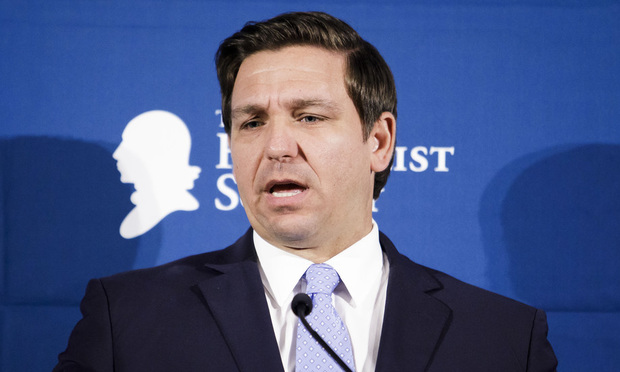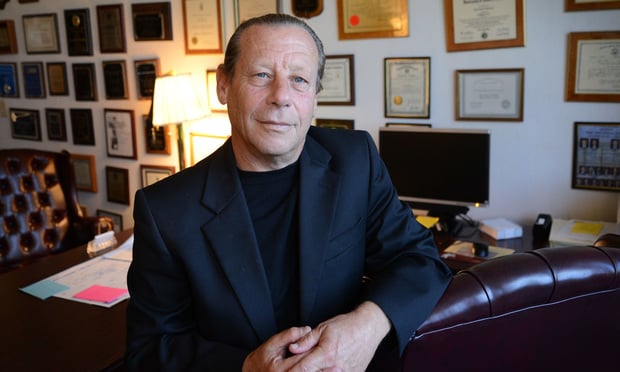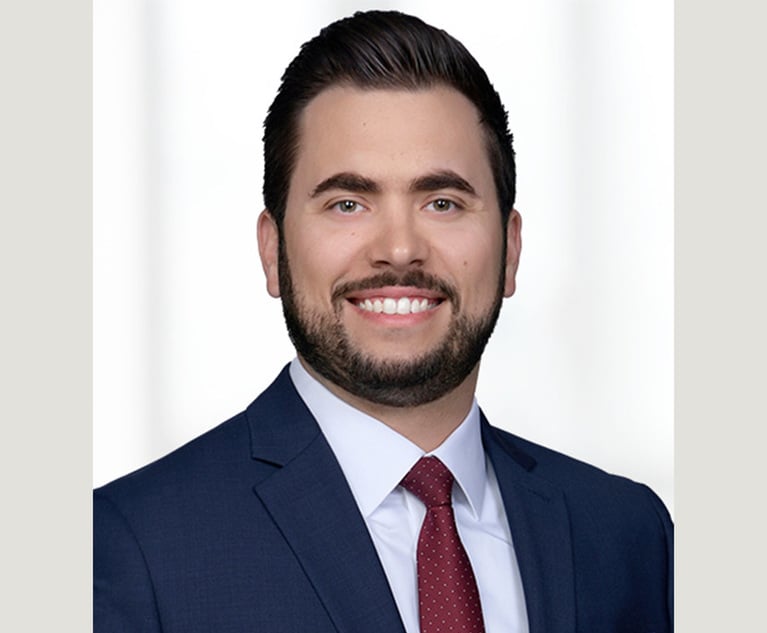Gov. Ron DeSantis’ administration contends the state is “threatened with irreparable harm” if a federal judge’s ruling is upheld.
But attorneys for felons who want voting rights restored say the state’s position seeks to undermine a “bedrock constitutional principle.”


 Florida Gov. Ron DeSantis. Photo: Diego M. Radzinschi/ALM
Florida Gov. Ron DeSantis. Photo: Diego M. Radzinschi/ALM




